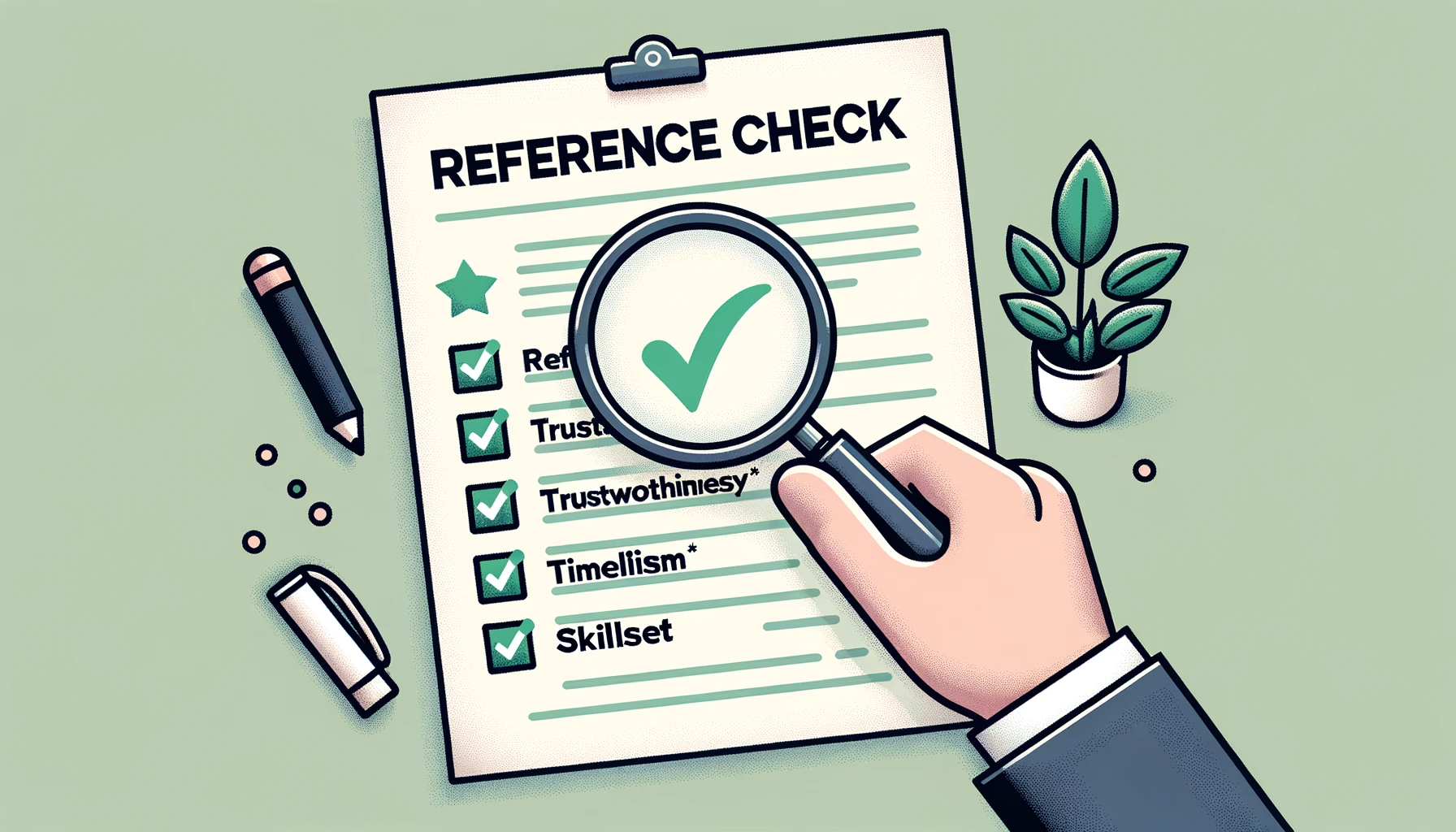Getting Reference Checks Right

by Jesse Plunkett Posted on 6 months ago


by Jesse Plunkett Posted on 6 months ago

The significance of conducting reference checks in the hiring process is something almost every seasoned HR professional can attest to. Industry leaders such as Jack Altman, CEO and Co-founder of Lattice, don't just consider it important—they label it as an "underrated secret weapon" in recruiting. This sentiment is further supported by scholarly research, including publications from the Harvard Business Review.
As much as reference checks are valued for the unique and often indispensable insights they offer, the process is often cumbersome, time-consuming, and fraught with challenges. Let’s dive deeper into each of these common issues:
Time Drain
One of the biggest grievances hiring teams have is that reference checks are a logistical nightmare. The effort that goes into coordinating phone calls, playing phone tag, and waiting for people to be available can significantly slow down the entire hiring process.
Data Overload
Another common issue is the text-heavy nature of the data collected. Reading through paragraphs of comments and impressions can be overwhelming, especially when you're dealing with multiple candidates.
Underutilized Information
What adds to the frustration is that often, the rich data collected doesn’t get the attention it deserves post-collection. This valuable information frequently ends up gathering dust, so to speak.
Poor Timing
In many cases, reference checks are conducted too late in the game, rendering the insights ineffective in actually shaping the hiring decision.
Ineffectual Results
Despite the effort put into conducting them, reference checks rarely end up disqualifying candidates, which can make the entire process seem futile.
Positive Bias
It's a given that candidates will choose references they expect to be favorable, introducing an inherent positive bias into the process.
Eliminating reference checks from the recruitment process may seem like a tempting solution to these challenges, but that's a perilous path. The first question to ask is: What is the opportunity cost of not conducting reference checks? The answer is potentially multi-faceted. You risk either missing out on a gem of a candidate or, conversely, hiring someone who ends up being a poor fit—both of which are costly mistakes.
Given the inherent complexities and the significant stakes involved, it's imperative to find a way to make reference checks more efficient, more insightful, and overall, more effective. Here are some targeted strategies to address each of the issues previously outlined.
Tackling Time Constraints
The traditional method of scheduling phone calls for reference checks is outdated and cumbersome. A more contemporary approach could involve sending out pre-designed surveys focusing on the candidate’s behavioral traits. These surveys, backed by principles of industrial-organizational psychology, can yield deep insights in a fraction of the time. Experience shows that a well-designed survey can be completed by references within just one to two days, significantly accelerating the timeline.
Streamlining Data Consumption
Rather than relying on lengthy text-based feedback, why not employ visual data representation methods? You could create scorecards that indicate how a candidate fares on key metrics, or even lists that highlight a candidate’s primary strengths and weaknesses. Visual spectrums could indicate how well a candidate's working style aligns with the team they are being considered for. This approach makes it easier for hiring teams to quickly understand and act on the information gathered.
Maximizing the Utility of Collected Data
Data collected from references should not be a one-and-done affair. Uploading this data to the Applicant Tracking System (ATS) ensures that it's readily accessible for future use. Moreover, this data can be invaluable in the onboarding process, helping managers to tailor their approach to each new hire, thereby expediting the onboarding process and increasing employee engagement from day one.
Revising the Timing
By making the process more efficient, there's room to conduct reference checks earlier in the hiring timeline. This ensures that the insights can be acted upon effectively, rather than being an afterthought. Companies like Zapier have successfully integrated references with final round interviews, allowing for a more holistic view of candidates before making a hiring decision.
Making It Count
If reference checks are merely rubber-stamping the decisions of the hiring committee, then they are a wasted effort. The data gathered should be robust enough to sometimes cause the committee to reconsider their initial impressions. Anecdotal evidence suggests that high-quality reference checks have led to hiring decisions that might not have been made otherwise, with these hires often turning into top performers.
Addressing the Bias Issue
While it's true that candidates will generally select references who are likely to give positive feedback, it doesn't mean that the data will be entirely skewed. Analytical methods can be employed to weigh the feedback based on various factors such as the reference's experience level, the duration of their relationship with the candidate, and the time elapsed since they last worked together. This adds nuance to the assessment and helps mitigate inherent biases.
Instituting Standardization
The use of pre-designed surveys not only speeds up the process but also adds a much-needed layer of standardization. This ensures that each candidate is assessed based on the same criteria, making it easier to compare and contrast different applicants. Software tools can further assist in specifying the number and types of references required, adding another layer of uniformity to the process.
By systematically addressing these challenges, organizations can fully capitalize on the untapped power of reference checks. This is particularly crucial in today's competitive job market, where speed and efficiency are of the essence. The long-term benefits extend beyond immediate hiring needs, impacting areas like talent branding, job description formulation, and structured interviewing. In slower hiring markets, a well-calibrated reference check process can serve as a bulwark against indecision, helping organizations to confidently identify and secure the best talent available.
By embracing these changes, companies can turn the often-dreaded task of conducting reference checks into a strategic asset, one that pays dividends in both the short-term hiring process and long-term organizational success.
Don't miss these key insights. Get the latest articles sent to your inbox the morning after they're published.